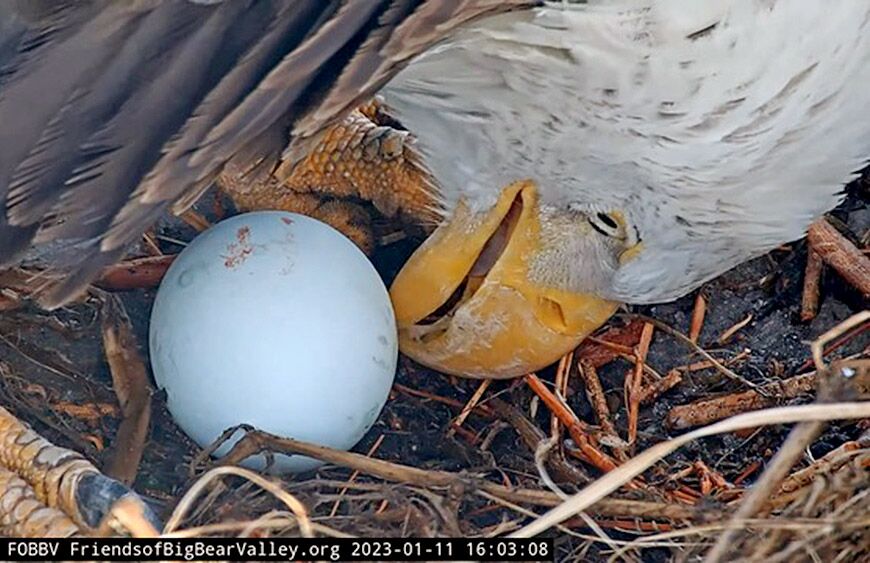Big Bear bald eagles Jackie and Shadow’s eggs eaten by ravens, but new clutch is possible this year


The eggs of a bald eagle couple in San Bernardino National Forest have been eaten by ravens, according to the Friends of Big Bear Valley.
Jackie and Shadow — for whom thousands of people were rooting as they attempted to become parents again — had abandoned their nest with the two eggs inside. Friends of Big Bear Valley, a group focused on advocating for the valley’s natural inhabitants, saw footage of ravens eating the eggs.
“If they developed at all, it was minimal,” said Sandy Steers, a biologist and executive director of Friends of Big Bear Valley who has been watching the eagles for more than 10 years. She said the eggs eaten by the ravens were mostly liquid.
“The thing to know is, whatever Jackie and Shadow were doing, not being on the nest didn’t have an impact on the eggs, because up until when the eggs were 30 days old, they were sitting on the nest full time and trading back and forth,” Steers said. “By this time, the egg would’ve been fully developed, so the eggs had already stopped developing.”
Friends of Big Bear Valley confirmed Monday on its Facebook page that after some squabbling, Jackie had convinced Shadow that all hope for the eggs was lost. The group noted that the eagles had not visited the nest all day.
Eagle eggs often hatch in about 35 days.
Steers noted that it’s possible that the recent spate of cold, wet weather halted development of the eggs. She said it’s common for not all of an eagle’s eggs to hatch, but it’s difficult to say what happened without testing. In Jackie’s case, half of her eggs have hatched during the time she has been observed.
Steers said she was not surprised that the eggs didn’t hatch, given that Jackie and Shadow were not sitting on them. She said there’s reason to be hopeful, though, since in the last few weeks, the camera spotted Jackie and Shadow having “a nice romantic rendezvous for three minutes” in nearby trees. In previous years, Jackie has laid eggs as late as March.
“I’m always hoping for the best, but when they stopped sitting on [the eggs], it seemed like something was off,” Steers said. “We’ll just have to see what they do next.”
Share this news on your Fb,Twitter and Whatsapp
Times News Network:Latest News Headlines
Times News Network||Health||New York||USA News||Technology||World News